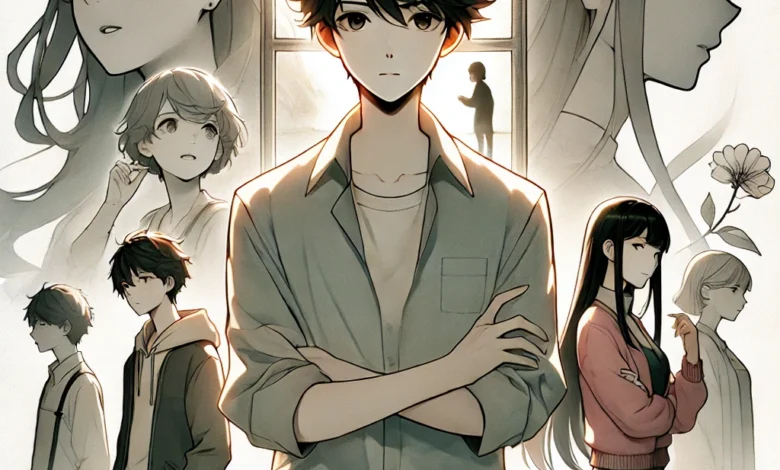Understanding Secret Class: A Deep Dive into the Popular Manga Series

Introduction
In the ever-expanding world of manga, where creativity knows no bounds, “Secret Class” has carved out a unique space for itself. This series, known for its intricate storytelling and captivating characters, has garnered a significant following. But what exactly makes “Secret Class” stand out from the crowd? In this blog post, we’ll take a closer look at this popular manga, exploring its plot, characters, and themes, and comparing it to similar works. We’ll also provide new insights that you won’t find in other analyses. Whether you’re a seasoned manga reader or new to the genre, this guide will offer something valuable.
What is “Secret Class”?
“Secret Class” is a South Korean webtoon (manhwa) that has gained widespread popularity for its mature themes and engaging plot. The story revolves around a young man named Dae Ho, who is orphaned at a young age and taken in by his father’s friend. The plot thickens as Dae Ho, now a teenager, embarks on a journey of self-discovery, guided by the female figures in his life. The series is known for its mix of comedy, drama, and romance, making it a compelling read for a diverse audience.
Plot Overview
The central plot of “Secret Class” is centered around Dae Ho’s coming-of-age story. After being orphaned, Dae Ho is raised by his father’s friend and his family. As he grows older, Dae Ho begins to navigate the complexities of adulthood, with a particular focus on relationships and intimacy. The series delves into his experiences as he learns about love, lust, and the intricacies of human emotions. What sets “Secret Class” apart is its ability to balance humor with more serious themes, creating a narrative that is both entertaining and thought-provoking.
Character Analysis
One of the strengths of “Secret Class” lies in its well-developed characters. Each character in the series has a distinct personality and plays a crucial role in Dae Ho’s development. Here are some key characters:
- Dae Ho: The protagonist of the series, Dae Ho is a young man who is naive yet curious about the world around him. His journey from adolescence to adulthood is the core of the story.
- June: A central figure in Dae Ho’s life, June is his stepmother, who takes on the role of a mentor and guide as he navigates the complexities of growing up.
- Mia: Another important character, Mia is Dae Ho’s childhood friend who becomes a significant influence in his life. Her relationship with Dae Ho adds depth to the story, exploring themes of friendship and love.
- Yura: Dae Ho’s stepsister, Yura, plays a crucial role in the plot, particularly in how she influences Dae Ho’s understanding of relationships and intimacy.
Themes Explored in “Secret Class”
“Secret Class” touches on several themes that resonate with its audience. Here are a few key themes:
- Coming of Age: At its core, “Secret Class” is a coming-of-age story. It explores the trials and tribulations of growing up, particularly in the context of relationships and sexuality.
- Family Dynamics: The series also delves into the complexities of family relationships, particularly the non-traditional family structure in which Dae Ho is raised. The interactions between Dae Ho and his stepfamily are central to the narrative.
- Exploration of Sexuality: “Secret Class” doesn’t shy away from discussing sexuality. The series is known for its mature content, which is handled in a way that is both sensitive and realistic.
- Humor and Drama: The balance of humor and drama is another defining feature of “Secret Class.” The series manages to tackle serious subjects while maintaining a light-hearted tone, making it accessible to a broader audience.
Comparison with Competitors
When comparing “Secret Class” to other manga series, particularly those with similar themes, it becomes clear why it stands out.
- “Hajimete no Gal”: This manga also explores themes of adolescence and relationships but leans more heavily on comedy. While “Hajimete no Gal” focuses on the lighter side of teenage romance, “Secret Class” provides a more nuanced exploration of sexuality and relationships.
- “Domestic Girlfriend”: Another series that deals with complex family dynamics and romantic relationships, “Domestic Girlfriend” is often compared to “Secret Class.” However, “Secret Class” distinguishes itself by incorporating humor in a way that “Domestic Girlfriend” does not, making it a more balanced read.
- “Nozoki Ana”: Known for its mature themes, “Nozoki Ana” is perhaps the closest in tone to “Secret Class.” However, “Secret Class” offers a more developed storyline and better character development, making it a more engaging series overall.
New Insights: What Makes “Secret Class” Unique?
While many manga series explore similar themes, “Secret Class” offers a unique take by combining humor with drama in a way that feels natural and unforced. The character development in “Secret Class” is also superior to many of its competitors, with each character undergoing significant growth throughout the series. Moreover, the series’ handling of mature themes is done with a level of sensitivity and realism that is often lacking in other works.
Another unique aspect of “Secret Class” is its exploration of non-traditional family structures. The series presents a more modern view of family, where the bonds are not defined by blood but by shared experiences and mutual respect. This portrayal is refreshing and resonates with readers who may have similar experiences.
Conclusion
“Secret Class” is more than just a coming-of-age story; it’s a nuanced exploration of relationships, family dynamics, and the journey to adulthood. Its unique blend of humor and drama, coupled with well-developed characters, makes it a standout series in the world of manga. By offering new insights and delving deeper into its themes, this blog post has aimed to provide a more detailed and informative analysis than what you might find elsewhere.
If you’re looking for a manga that offers a fresh perspective on familiar themes, “Secret Class” is worth checking out. Its balance of humor and drama, along with its thoughtful exploration of complex issues, makes it a series that will keep you engaged from start to finish.



